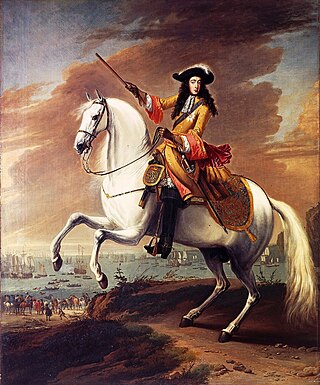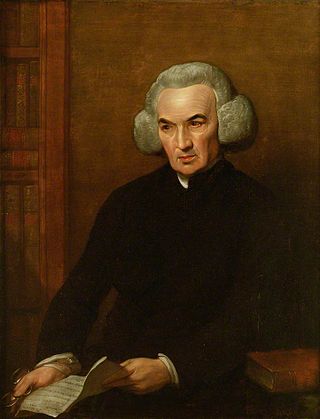Related Research Articles
Historiography is the study of the methods used by historians in developing history as an academic discipline, and by extension, the term historiography is any body of historical work on a particular subject. The historiography of a specific topic covers how historians have studied that topic by using particular sources, techniques of research, and theoretical approaches to the interpretation of documentary sources. Scholars discuss historiography by topic — the historiography of the United Kingdom, of WWII, of the pre-Columbian Americas, of early Islam, and of China — and different approaches to the work and the genres of history, such as political history and social history. Beginning in the nineteenth century, the development of academic history produced a great corpus of historiographic literature. The extent to which historians are influenced by their own groups and loyalties — such as to their nation state — remains a debated question.

Jacobitism was a political movement that supported the restoration of the senior line of the House of Stuart to the British throne. The name derives from the first name of James II of England, which is rendered in Latin as Jacobus. When James went into exile after the November 1688 Glorious Revolution, the Parliament of England decided that he had abandoned the English throne, which they offered to his Protestant daughter Mary II of England, and her husband William III. In April, the Scottish Convention held that James "forfeited" the throne of Scotland by his actions, listed in the Articles of Grievances.

The 18th century lasted from 1 January 1701 to 31 December 1800 (MDCCC). During the 18th century, elements of Enlightenment thinking culminated in the Atlantic Revolutions. During the century, slave trading and human trafficking expanded across the shores of the Atlantic, while declining in Russia, China, and Korea. Revolutions began to challenge the legitimacy of monarchical and aristocratic power structures, including the structures and beliefs that supported slavery. The Industrial Revolution began during mid-century, leading to radical changes in human society and the environment. The European colonization of the Americas and other parts of the world intensified and associated mass migrations of people grew in size as part of the Age of Sail.
The Whigs were a political party in the Parliaments of England, Scotland, Ireland, Great Britain and the United Kingdom. Between the 1680s and the 1850s, the Whigs contested power with their rivals, the Tories. The Whigs merged into the Liberal Party with the Peelites and Radicals in the 1850s. Many Whigs left the Liberal Party in 1886 to form the Liberal Unionist Party, which merged into the Conservative Party in 1912.

The English Revolution is a term that describes two separate events in English history. Prior to the 20th century, it was generally applied to the 1688 Glorious Revolution, when James II was deposed and a constitutional monarchy established under William III and Mary II.

The Kingdom of Great Britain was a sovereign state in Western Europe from 1707 to the end of 1800. The state was created by the 1706 Treaty of Union and ratified by the Acts of Union 1707, which united the kingdoms of England and Scotland to form a single kingdom encompassing the whole island of Great Britain and its outlying islands, with the exception of the Isle of Man and the Channel Islands. The unitary state was governed by a single parliament at the Palace of Westminster, but distinct legal systems—English law and Scots law—remained in use.

Richard Price was a Welsh moral philosopher, Nonconformist minister and mathematician. He was also a political reformer, pamphleteer, active in radical, republican, and liberal causes such as the French and American Revolutions. He was well-connected and fostered communication between many people, including Thomas Jefferson, John Adams, George Washington, Mirabeau and the Marquis de Condorcet. According to the historian John Davies, Price was "the greatest Welsh thinker of all time".

The Georgian era was a period in British history from 1714 to c. 1830–1837, named after the Hanoverian kings George I, George II, George III and George IV. The definition of the Georgian era is also often extended to include the relatively short reign of William IV, which ended with his death in 1837. The subperiod that is the Regency era is defined by the regency of George IV as Prince of Wales during the illness of his father George III. The transition to the Victorian era was characterized in religion, social values, and the arts by a shift in tone away from rationalism and toward romanticism and mysticism.

Impressment, colloquially "the press" or the "press gang", is the forced conscription of men into a military force, especially a naval force, via intimidation and physical coercion, conducted by an organized group. European navies of several nations used forced recruitment by various means. The large size of the British Royal Navy in the Age of Sail meant impressment was most commonly associated with Great Britain and Ireland. It was used by the Royal Navy in wartime, beginning in 1664 and during the 18th and early 19th centuries as a means of crewing warships, although legal sanction for the practice can be traced back to the time of Edward I of England. The Royal Navy impressed many merchant sailors, as well as some sailors from other, mostly European, nations. People liable to impressment were "eligible men of seafaring habits between the ages of 18 and 55 years". Non-seamen were sometimes impressed as well, though rarely. In addition to the Royal Navy's use of impressment, the British Army also experimented with impressment from 1778 to 1780.
Roy Sydney Porter, FBA was a British historian known for his work on the history of medicine. He retired in 2001 from the director of the Wellcome Institute for the History of Medicine at University College London (UCL).
The phrase Protestant Wind has been used in more than one context, notably:
- The storm that lashed the Spanish Armada in 1588. The wind wrecked the Spanish fleet and thus saved England from invasion by the army of Philip II of Spain. The English made a commemorative medal saying 'He blew with His winds, and they were scattered'.
- The favourable winds that enabled William of Orange to invade England in 1688, when King James II was deposed in the Glorious Revolution.
Early modern Britain is the history of the island of Great Britain roughly corresponding to the 16th, 17th and 18th centuries. Major historical events in early modern British history include numerous wars, especially with France, along with the English Renaissance, the English Reformation and Scottish Reformation, the English Civil War, the Restoration of Charles II, the Glorious Revolution, the Treaty of Union, the Scottish Enlightenment and the formation and the collapse of the First British Empire.
George Rudé was a British Marxist historian, specializing in the French Revolution and "history from below", especially the importance of crowds in history.
Jonathan Charles Douglas Clark is a British historian of both British and American history. He received his undergraduate degree at Downing College, Cambridge. Having previously held posts at Peterhouse, Cambridge and All Souls College, Oxford into 1996, he has since held the Joyce C. and Elizabeth Ann Hall Distinguished Professorship of British History at the University of Kansas.
Jeremy Black is a British historian, writer, and former professor of history at the University of Exeter. He is a senior fellow at the Center for the Study of America and the West at the Foreign Policy Research Institute in Philadelphia, Pennsylvania, US.

The Second Hundred Years' War is a periodization or historical era term used by some historians to describe the series of military conflicts around the globe between Great Britain and France that occurred from about 1689 to 1815, including several separate wars such as the War of the Spanish Succession, War of the Austrian Succession, Seven Years' War, American Revolutionary War and the Napoleonic Wars. The Second Hundred Years' War is named after the Hundred Years' War, which occurred in the 14th and 15th century. The term appears to have been coined by J. R. Seeley in his influential work The Expansion of England (1883).

The historiography of the British Empire refers to the studies, sources, critical methods and interpretations used by scholars to develop a history of the British Empire. Historians and their ideas are the main focus here; specific lands and historical dates and episodes are covered in the article on the British Empire. Scholars have long studied the Empire, looking at the causes for its formation, its relations to the French and other empires, and the kinds of people who became imperialists or anti-imperialists, together with their mindsets. The history of the breakdown of the Empire has attracted scholars of the histories of the United States, the British Raj, and the African colonies. John Darwin (2013) identifies four imperial goals: colonising, civilising, converting, and commerce.
Peter James Marshall is a British historian known for his work on the British Empire, particularly the activities of British East India Company servants in 18th-century Bengal, and also the history of British involvement in North America during the same period. He is not to be confused with his contemporary, the other P. J. Marshall, who chronicled the history of public transport in the British Isles.
The historiography of the United Kingdom includes the historical and archival research and writing on the history of the United Kingdom, Great Britain, England, Scotland, Ireland, and Wales. For studies of the overseas empire see historiography of the British Empire.
Francis Ludwig Carsten was a British historian of Germany. He was described by Peter Wende as "the doyen of British historians working on Germany". He was the father of British social anthropologist Janet Carsten.
References
- ↑ Olsen, John Andreas; Gray, Colin S. (2011). The Practice of Strategy: From Alexander the Great to the Present. Oxford University Press. ISBN 9780199608638.
- 1 2 Baines, Paul (2004). The Long 18th century. London: Arnold. ISBN 978-0-340-81372-0.
- ↑ O'Gorman, Frank (1997). The Long Eighteenth Century: British Political and Social History 1688–1832 (The Arnold History of Britain Series) . Hodder Arnold. ISBN 978-0-340-56751-7. OCLC 243883533.
- ↑ Marshall, P. J. (2001). "Introduction". Oxford History of the British Empire. Volume II: The Eighteenth Century. Oxford University Press. p. 1. ISBN 978-0-19-924677-9. OCLC 174866045.
- ↑ J. R. Seeley, The Expansion of England; Two Courses of Lectures, second edn. (London: Macmillan, 1914), 25.
- ↑ "British History in the Long 18th Century | Institute of Historical Research". www.history.ac.uk. 23 October 2011. Retrieved 10 May 2024.